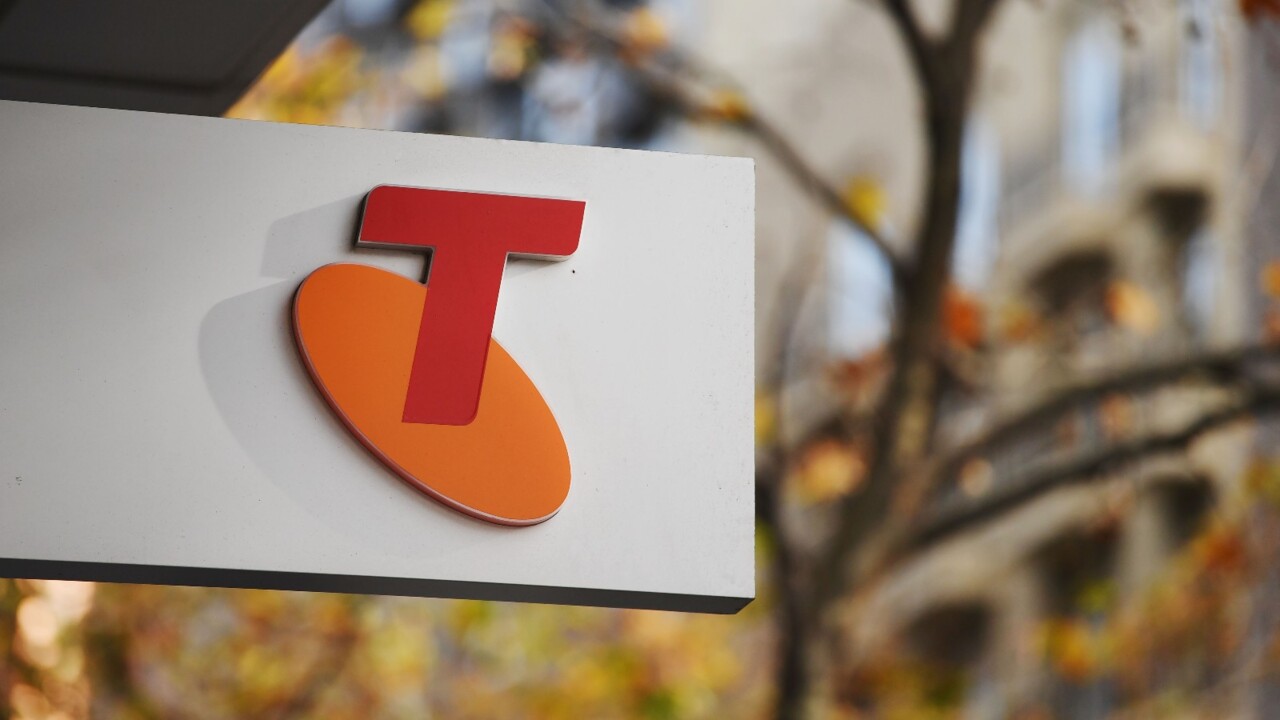Telstra share price dives to three-year low as company cuts jobs and faces competition
Market watchers say Telstra’s share price could continue to fall as it trades at a three-year low following the telco’s decision to sack almost 3000 workers.

Telstra shares are vulnerable to further falls after Australia’s biggest telco hit a three-year low following the announcement of plans to axe up to 2800 jobs — or about 9 per cent of its workforce amid increasing competition.
The company, which is one of the most popular stocks held by institutional and retail investors, closed on Friday down more than 6 per cent for the week at $3.45 — the lowest close since early May 2021.
Total losses are now 21 per cent in the past 12 months — in stark contrast to the broader the ASX 200, which has rallied 8 per cent in that time.
The sell-off was largely in response to lower than expected earnings guidance and Telstra’s plan to remove its annual inflation-linked price increases for mobiles, which surprised many analysts as it looks to achieve $400m in cost savings as part of its ambitious T25 strategy.
Telstra said it would also sack 2800 staff as it loses ground to web calls and cloud services from bigger technology companies, which have been poaching its lucrative enterprise customers.
IG market analyst Tony Sycamore told The Australian that the company’s share price was vulnerable to further losses as investors assessed how it would meet growth targets.
“It is never a good sign when making this kind of cost cutting. Investors will rightfully be asking about where the growth is going to come from,” he said.
“There is not a good reason why you would buy Telstra — it has dropped below some key levels on the technical charts. It is also hard to make the case from a fundamental perspective given the challenges that it faces.”
Mr Sycamore added that given that Telstra does not have the monopoly it once had, it made it harder to pass costs on to customers who could easily move to other providers.
Telstra chief executive Vicki Brady said the job cuts were necessary to ensure “Telstra could continue to make the investments needed to support the ever-increasing growth in data volumes on its networks and deliver improved connectivity for customers across the country”.
Telstra is also set to face increased competition after Optus signed a $1.6bn deal with TPG in which the two major telcos will share mobile networks across regional Australia. Analysts say the Optus-TPG deal, which remains subject to approval from regulators, will break Telstra’s monopoly in regional areas and has forced it to drop CPI-linked price rises for mobile customers.
Wealth Within chief analyst Dale Gillham said the sharp pullback in shares raises questions about whether this presents an opportunity to acquire a “blue-chip stock at a discount” or if it signals underlying issues within one of Australia’s major market players.
“If these cost savings are effectively reinvested to foster growth and innovation, this will potentially boost the share price,” he said.
“If this occurs, then Telstra might become an appealing investment option. One thing of note is that Telstra’s core mobile business continues to perform strongly, with the company projecting a pre-tax, pre-interest profit of $8.4-8.7bn for the 2025 financial year.”
Mr Gillham said that in the past Telstra has only dipped below $3.40 three times in its 27-year tenure on the ASX and had rebounded strongly each time by at least 17 per cent.
“If Telstra has played its cards right, albeit at the cost of an unpopular decision, then perhaps we’re witnessing a ‘blue-chip stock at a discount’ right now,” he said.
“However, I would exercise caution and wait for signs of upward price momentum to confirm a new uptrend before you consider it a buying opportunity.”
Mr Gillham added that if the expected $350m benefits from cost savings are effectively reinvested to foster growth and innovation, then it had the potential to lift the share price and become an appealing investment.
Analysts have been busy with Telstra in the past week with Morgan Stanley slashing its target price from $4.50 to $4.20, and revised earnings estimates lower, but emphasised it’s “a global and industry-wide issue” as “software companies are displacing traditional telcos for telephony and connectivity”.
UBS analyst Lucy Huang maintained her target price as she said the job cuts were largely expected given sticky inflation and the expected wage increases from upcoming EBA negotiations.
“Beyond the 2024 financial year, we see group operating expenses growing 1 per cent over FY25-28e (below inflation) suggesting likelihood of further cost outs beyond T25.”








To join the conversation, please log in. Don't have an account? Register
Join the conversation, you are commenting as Logout